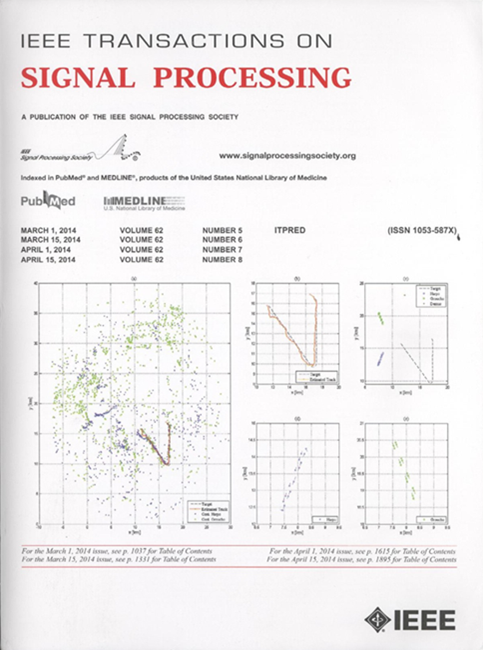随机通信协议下多传感器网络非线性系统的分布式扩展卡尔曼一致性滤波
IF 5.8
2区 工程技术
Q1 ENGINEERING, ELECTRICAL & ELECTRONIC
引用次数: 0
摘要
研究了随机通信协议下多传感器网络非线性系统的分布式扩展卡尔曼一致滤波问题。在传感器网络中,每个传感器节点与其相邻节点在交换测量数据时占用有限的通信信道。利用配备scp的通信网络确保每个传感器节点的相邻节点随机访问这些通道,并根据每一步的通道数量发送测量数据。引入一组随机变量来表示相邻节点,这些节点的测量值在每一步被选择用于传输。当每个传感器节点都知道每一步从相邻节点接收到的测量数据时,设计了一个依赖于随机变量的分布式扩展卡尔曼共识滤波器。为了提高节点间的估计一致性,在性能度量中加入共识项,并引入加权因子在估计精度和一致性之间分配权重。最优滤波增益是通过最小化这个性能度量得到的。给出了滤波误差呈指数均方有界性的一个充分条件。最后,通过仿真算例验证了算法的有效性。本文章由计算机程序翻译,如有差异,请以英文原文为准。
Distributed Extended Kalman Consensus Filtering for Multi-Sensor Networked Nonlinear Systems Under Stochastic Communication Protocol
The distributed extended Kalman consensus filtering problem under stochastic communication protocol (SCP) is investigated for multi-sensor networked nonlinear systems. In the sensor network, each sensor node and its neighbor nodes occupy a limited number of communication channels when exchanging measurement data. Utilizing the SCP-equipped communication network ensures that the neighbor nodes of each sensor node randomly access these channels and send measurement data based on the number of channels at each step. A set of random variables is introduced to represent the neighbor nodes whose measurements are selected for transmission at each step. When each sensor node is aware of the measurement data received from its neighbor nodes at each step, a distributed extended Kalman consensus filter dependent on random variables is designed. To improve the estimation consensus among nodes, a consensus term is added to the performance metric, and a weighting factor is introduced to assign weight between estimation accuracy and consensus. The optimal filtering gain is derived by minimizing this performance metric. A sufficient condition for the exponential mean-square boundedness of the filtering error is given. Finally, the proposed algorithm’s effectiveness is validated through a simulation example.
求助全文
通过发布文献求助,成功后即可免费获取论文全文。
去求助
来源期刊

IEEE Transactions on Signal Processing
工程技术-工程:电子与电气
CiteScore
11.20
自引率
9.30%
发文量
310
审稿时长
3.0 months
期刊介绍:
The IEEE Transactions on Signal Processing covers novel theory, algorithms, performance analyses and applications of techniques for the processing, understanding, learning, retrieval, mining, and extraction of information from signals. The term “signal” includes, among others, audio, video, speech, image, communication, geophysical, sonar, radar, medical and musical signals. Examples of topics of interest include, but are not limited to, information processing and the theory and application of filtering, coding, transmitting, estimating, detecting, analyzing, recognizing, synthesizing, recording, and reproducing signals.
 求助内容:
求助内容: 应助结果提醒方式:
应助结果提醒方式:


